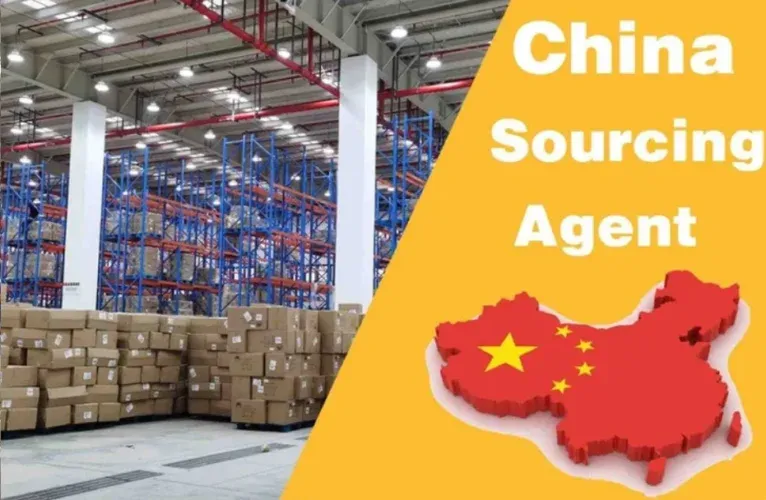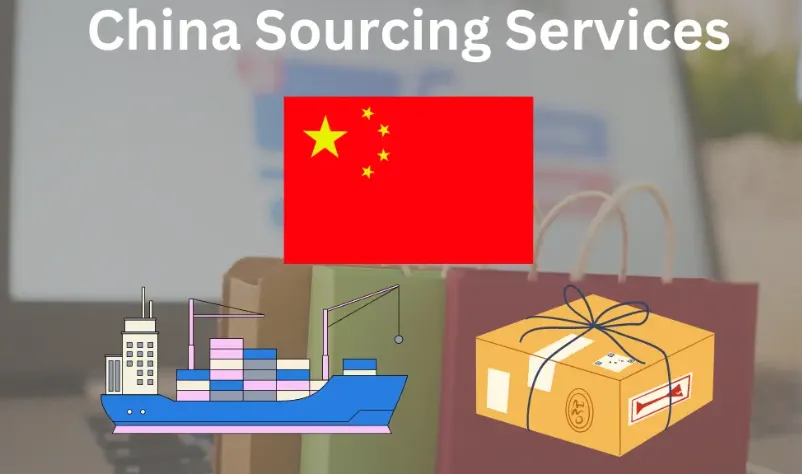China Sourcing Agency Fees and Services: A Strategic Guide

Navigating China's manufacturing landscape presents a universal challenge for global procurement teams. You're balancing pressure to reduce costs against the relentless risks of quality failures, supply chain disruptions, and the escalating demand for ethical and sustainable practices. A China sourcing agent isn't just a middleman; they are your strategic partner on the ground, transforming these challenges into a competitive advantage. This guide moves beyond basic definitions to provide a strategic framework for evaluating agent fees and services, empowering you to build a more resilient and responsible supply chain.
Key Takeaways for the Strategic Buyer

Understanding Sourcing Agent Service Models & Strategic Positioning
A Deep Dive into China Sourcing Agent Fees & Cost Structures
Core Services: The End-to-End Supply Chain Management Playbook
The Strategic Edge: Integrating ESG into Your Sourcing Strategy
Case Study: Implementing a Sustainable Sourcing Strategy
How to Select the Right Strategic Sourcing Partner
Frequently Asked Questions (FAQ)
Not all sourcing partnerships are created equal. The model you choose should reflect your company's internal capabilities, strategic goals, and the complexity of your supply chain. Think of it as a spectrum from transactional support to strategic partnership.
Project-Based Model: Ideal for one-off purchases, pilot projects, or companies testing the waters with a new product category. You pay for a clearly defined scope of work, such as sourcing three potential suppliers for a specific component and conducting initial factory audits. This model offers high flexibility but less ongoing commitment from the agent.
Retainer-Based Model: Suited for businesses with consistent, high-volume sourcing needs. This model secures dedicated support, often with a designated account manager, and ensures your projects receive priority attention. The retainer fee guarantees the agent's availability and resources, fostering a deeper understanding of your business and long-term quality consistency.
Hybrid Model: This has become the industry standard for sophisticated procurement operations. It typically combines a lower retainer fee that covers core communication and project management, with additional fees for specific, resource-intensive services like in-depth factory audits, on-site production monitoring, or specialized ESG compliance checks. This offers excellent cost control and scalability.
Transparency in fees is the cornerstone of a trustworthy partnership. Understanding the "why" behind each model allows you to align the agent's incentives with your own business objectives.

1. Commission-Based Model (The Performance-Aligned Option)
The agent charges a percentage of the Final Unit Price x Order Quantity paid to the factory.
Typical Range: 3% to 10%.
When It Works Best: For ongoing sourcing of finished goods or components where the primary goal is to achieve the lowest possible unit cost.
Critical Consideration: Ensure transparency in the factory's original quotation. The best practice is to have the factory's price and the agent's commission listed separately in the proforma invoice (PI) to avoid any markup ambiguity.
2. Flat-Fee or Hourly Rate Model (The Project-Control Option)
The agent charges a predetermined fee for specific, non-transactional services.
When It Works Best: For supplier identification reports, factory audits, quality inspection services, and consulting projects like supply chain mapping.
Industry Benchmark: A comprehensive factory audit (covering quality, capacity, and social compliance) can range from $400 to $800, depending on the location and depth of the report.
3. Hybrid Model (The Strategic Partnership Option)
This model combines a reduced commission on orders with à la carte pricing for specialized services.
Why It's Effective: It provides cost predictability for your core sourcing activities while giving you the flexibility to activate specialized services (like enhanced QC during peak production) without renegotiating the entire agreement. It rewards the agent for the ongoing relationship while fairly compensating them for extra work.
Sourcing Agent Fee Structure Comparison
| Fee Model | Ideal Use Case | Primary Advantage | Key Consideration |
|---|---|---|---|
| Commission-Based | High-volume, ongoing product sourcing. | Agent's incentive is directly aligned with securing the best product price. | Requires full price transparency to ensure the agent isn't benefiting from an inflated factory price. |
| Flat-Fee / Hourly | Defined projects: audits, inspections, market research. | Complete budget control and predictability for specific deliverables. | The agent has no direct incentive to reduce your product cost, only to complete the task. |
| Hybrid Model | Businesses needing core support plus flexibility for specialized services. | Balances ongoing relationship management with fair payment for extra services. | The scope of work covered by the retainer vs. additional fees must be meticulously defined in the contract. |
Watch for Hidden Costs: Reputable agents are transparent. Discuss potential extra costs upfront, such as travel expenses for remote factory visits, courier fees for samples, or bank transfer charges. These should be documented in your agreement.
The value of a superior agent is manifested in their execution of core services. This is where risk is identified and mitigated.
Strategic Supplier Identification & Vetting: Moving beyond Alibaba, a professional agent leverages local industry networks, trade databases, and on-the-ground intelligence to create a shortlist of qualified suppliers. This is followed by a preliminary supplier evaluation covering financial stability, production capacity, and key clientele.
Comprehensive Factory Audits: This is your first and most crucial line of defense. It goes beyond a simple facility tour. A full audit includes:
Quality Management System Audit: Assessing the factory's ISO 9001 compliance, inspection processes, and corrective action systems.
Production Capacity Audit: Verifying machinery, workforce, and production lines to ensure they can meet your volume and timeline.
Social Compliance / ESG Audit: Evaluating working conditions, hours, wages, and safety protocols against international standards (more on this below).

Expert Negotiation & Contracting: Your agent negotiates not just on price, but on Minimum Order Quantity (MOQ), payment terms (e.g., shifting from 100% TT upfront to 30/70), lead times, and intellectual property protection clauses.
Multi-Stage Quality Control & Inspection: Defects are caught early, before they become costly.
Pre-Production Check: Verifying raw materials and components.
During Production Inspection (DUPRO): Conducted when 15-20% of the order is complete to catch issues early.
Pre-Shipment Inspection (PSI): The final random sampling inspection against your agreed-upon Acceptance Quality Limit (AQL) to determine if the shipment is ready to go.
Production Monitoring & Supply Chain Visibility: Your agent acts as your eyes on the production floor, providing regular updates and photos, tracking progress against the schedule, and identifying potential delays before they occur.
Logistics & Shipping Management: They coordinate with freight forwarders, prepare export documentation, and ensure your products comply with destination country import regulations, creating a seamless handoff from the factory to the ship.
In 2024, sustainable procurement is no longer a "nice-to-have" but a core component of supply chain resilience and brand integrity. A QIMA 2023 survey reported that 65% of global businesses now view ethical compliance as a critical factor in supplier selection. A modern sourcing agent is your essential partner in translating ESG policy into on-the-ground action.
An Actionable ESG Checklist for Your Sourcing Agent
Use this checklist to evaluate a potential agent's ESG capabilities and integrate it into your partnership:
Social Accountability Audits: Do they conduct audits against recognized standards like SA8000 or the Sedex SMETA methodology? Can they provide a sample audit report?
Environmental Regulation Verification: How do they verify a factory's compliance with local environmental laws regarding wastewater, emissions, and hazardous waste disposal?
Certification Validation: Do they physically validate certifications like ISO 14001 (Environmental Management) or industry-specific marks (e.g., FSC for wood, Oeko-Tex for textiles)?
Sub-Tier Supplier Scrutiny: What is their process for assessing environmental and social practices down the supply chain, at the sub-supplier level?
Policy & Worker Engagement Review: Do they review factory policies on child labor, forced labor, and discrimination? Do they conduct private worker interviews as part of their audit?
An agent who can execute this checklist is not just a service provider; they are a guardian of your corporate reputation.
Company: A mid-sized European consumer goods brand specializing in eco-friendly home products.
Challenge: Under pressure from retail partners and end-consumers, the brand needed to find a new supplier for its product packaging that was not only cost-competitive but also demonstrably sustainable and ethically produced. Their previous supplier could not provide adequate proof of compliance.

Solution: The brand engaged "Sourcing Allies," a China-based agent with a documented ESG practice. The agent executed a three-phase plan:
Supplier Identification: Using their network, they identified 5 potential suppliers who claimed to have green credentials and specialized in recycled materials.
Rigorous Vetting: Each supplier underwent a two-stage audit: first, a standard quality and capacity audit, followed by an unannounced social and environmental compliance audit.
Ongoing Monitoring: The contract included a clause for quarterly social compliance spot-checks and an annual full audit, with reports sent directly to the brand's ESG officer.
Result (2024):
The brand secured a compliant supplier at a 5% lower unit cost than their previous partner, directly due to the agent's superior negotiation with a qualified factory. More importantly, they received a comprehensive compliance dossier for the new supplier. This enabled them to confidently launch a marketing campaign around "Fully Audited, Sustainable Packaging," which resonated powerfully with their B2B clients, leading to a 15% increase in inquiries from sustainability-focused retailers within six months.
Choosing an agent is a strategic procurement decision in itself. Follow this disciplined five-step process:
Conduct an Internal Needs Assessment: Before you look outward, look inward. Document your product specifications, target volumes, quality tolerance levels, budget, and non-negotiable ESG criteria.
Shortlist Specialized Agents: Look for agents with proven expertise in your product category and, crucially, demonstrable experience in sustainable procurement and ESG compliance. Their website and case studies should reflect this.
Request a Detailed Proposal: Ask shortlisted agents to provide a formal proposal outlining their understanding of your needs, their recommended service model, a transparent breakdown of their China sourcing agent fees and services, and the team that would be assigned to your account.
Perform Rigorous Due Diligence: This step is critical. Check their business license, ask for at least three client references from similar industries, and schedule a video call with their management team to assess communication and cultural fit.
Initiate a Pilot Project: Before signing a long-term agreement, start with a smaller, well-defined order. This allows you to evaluate their performance, communication style, and reporting quality in a low-risk environment.
1. How can a sourcing agent provide concrete help in implementing our corporate sustainability policy in China?
They act as your on-the-ground enforcers and validators. They can conduct supplier training on your policy requirements, perform regular compliance audits against your specific code of conduct, and provide you with verified data (photos, reports, certification copies) to support your own sustainability reporting.
2. What are the three most important questions to ask a potential agent about their ESG capabilities?
Ask for: 1) A sample ESG/social compliance audit report they have conducted for another client (with confidential information redacted). 2) Their process for staying updated on changes to Chinese environmental and labor laws. 3) How they handle a situation where a high-performing factory fails a critical part of an ESG audit.
3. Beyond their fee, what are the most commonly overlooked costs when working with a sourcing agent?
These can include sample courier fees, travel expenses for visits to factories in remote locations, bank charges for international transfers, and costs for specialized third-party tests (e.g., lab safety tests for electronics). A professional agent will disclose these potential costs upfront.
4. How can we ensure our sourcing agent's quality control standards match our internal standards?
Provide them with your detailed Quality Control Inspection Sheet, including product specifications, packaging requirements, and your approved AQL levels for major and minor defects. Conduct a joint inspection on the first order to calibrate standards and ensure you are both assessing quality identically.
5. For a startup with low order volumes, which fee model is most cost-effective?
A project-based or flat-fee model is often best initially. It allows you to pay for specific, high-value services like supplier vetting and initial audits without committing to a percentage of your (potentially small) order value. This gives you the professional support you need while managing cash flow.
6. Can a sourcing agent realistically help us track and reduce the carbon footprint of our supply chain?
While a complex task, leading agents are now developing these capabilities. They can start by mapping your supply chain to identify major emission sources, collecting energy usage data from primary suppliers, and connecting you with factories that have green energy certifications or carbon reduction plans.
7. What should be the first step if we discover a discrepancy between our agent's report and the factory's actual situation?
Immediately initiate a formal conversation with the agent's management, presenting your evidence clearly. A reputable agent will have a conflict resolution process and will launch an internal investigation. This situation underscores the importance of conducting your own due diligence and occasional third-party checks, even when using an agent.
8. What key information must we provide to our agent at the start of a project to ensure success?
The foundational toolkit includes: technical drawings/specifications, a reference sample or golden sample, detailed packaging artwork and requirements, your target price and volume, required lead time, and a clear outline of your quality and ESG compliance standards.
9. How does a sourcing agent's service fundamentally differ from using a B2B platform's trade assurance service?
A sourcing agent provides proactive, hands-on management and is your strategic representative. A platform's trade assurance is a reactive, transaction-based insurance policy. The agent works to prevent problems from happening; the trade assurance may help you recoup losses after a problem occurs. The agent offers a relationship; the platform offers a transaction.
10. What are meaningful KPIs for measuring our sourcing agent's performance beyond cost savings?
Track metrics like: On-Time Delivery Rate, First-Pass Quality Yield (percentage of shipments passing inspection the first time), ESG Non-Conformance Closure Rate (how quickly they resolve identified issues), and the Reduction in Supply Chain Disruptions. These measure the health and resilience of your supply chain, not just the price.
Contact us
Call Us: +86 193 7668 8822
Email:[email protected]
Add: Building B, No.2, He Er Er Road, Dawangshan Community, Shajing Street, Bao'an District, Shenzhen, China